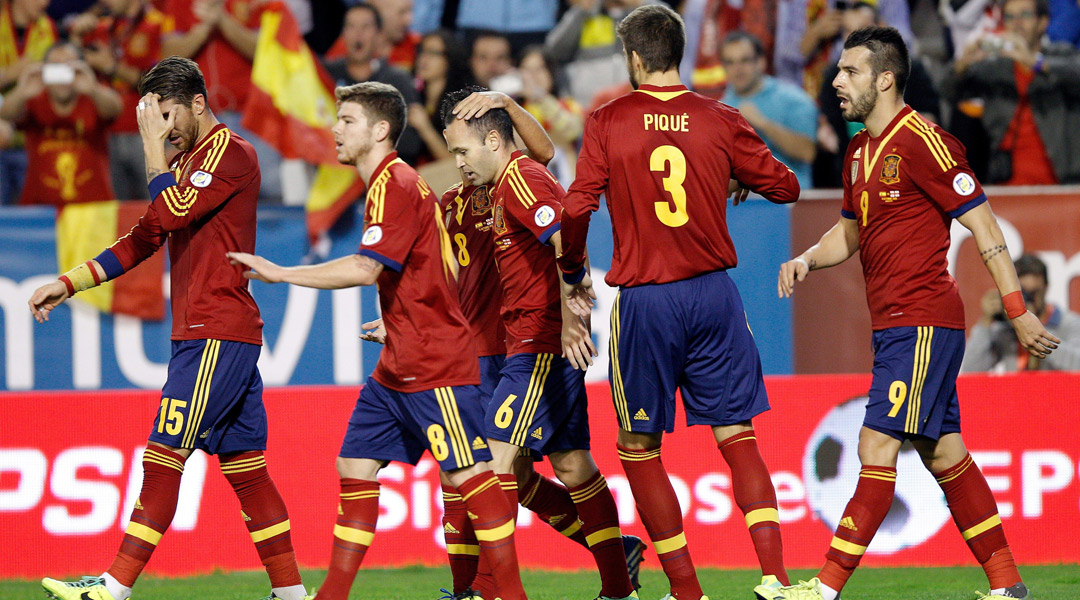Spain pressured to pull out of less-than-friendly friendly
Tim Stannard on the fully grown farce engulfing Vicente del Bosque's side's weekend...

The Spanish national side was looking for some playmates to help pass the time on the way to their friendly against South Africa. Gabon was first choice, but apparently there was no suitable pitch available. Angola was another possibility, but the finances didn’t quite work for the Spanish Federation.
Some bright spark then rang the football bosses of the utterly delightful country of Equatorial Guinea, a former colony, to ask if their national side fancied a match on Saturday. Unsurprisingly, the Africans leapt at the chance for some notion of credibility in the form of a match against the world champions.
And so begins a heck of a stink in Spain over whether the national team should be playing a country which could be described as possessing a spotty history of being nice to its citizens. As Jacinto Lara from the Human Rights Association of Spain wrote in a formal letter to the Spanish FA, they really shouldn’t be sharing a table and VIP box with “authorities who commit abhorrent crimes” such as “kidnapping, torture and executions.”
The front cover of Thursday's AS focuses on the enormous mess of the affair. Amnesty International has called for the suspension of the clash, which is never a good thing. Meanwhile, the Spanish government has washed its hands completely, although that's not suprising considering the perfectly healthy institutional relationship between the two states. The paper also reports a comment from a high-level source within the Spanish government suggesting the match is the result of a “chain of errors” thanks to other friendly matches falling through.
Get FourFourTwo Newsletter
The best features, fun and footballing quizzes, straight to your inbox every week.
“Some say they are there for nothing, some say millions,” writes Alfredo Relano on the motivation for the rather opaque affair. The response from the Spanish FA suggests the former, with an attack on those “people who want to turn a sporting matter into a political one.
"But if Spain are playing in Equatorial Guinea," he continues, "it isn’t to pander to [dictator] Tiadoro Obiang, but to give the Guinean people something to cheer about and to provide financial help to the country’s football federation, which is penniless. That’s why we’re going for free.”
The issue over how to swerve the likes of Andres Iniesta being in the same room as the country’s leader, Obiang, is a thorny one. The Spanish FA have to do everything imaginable to avoid a photo op between the player and a figure who has been in power since 1979, and lords over a country rich in oil but poor in access to drinking water unless you happen to be in the circle of trust.
For many, the match is a new low in the machinations of the Spanish FA, which has worked hard to send the national team around the globe 18 times to make as much money as possible in friendlies before another country picks up the mantel of being world champions. So far the Spanish players have refused to discuss the moral implications of Saturday’s match, as has president of the FA, Angel Villar.
In the meantime, the pressure will grow for Spain to find some other way to pass the time on the way to South Africa, as the country’s governing body learns that sport and politics can never be separated.
